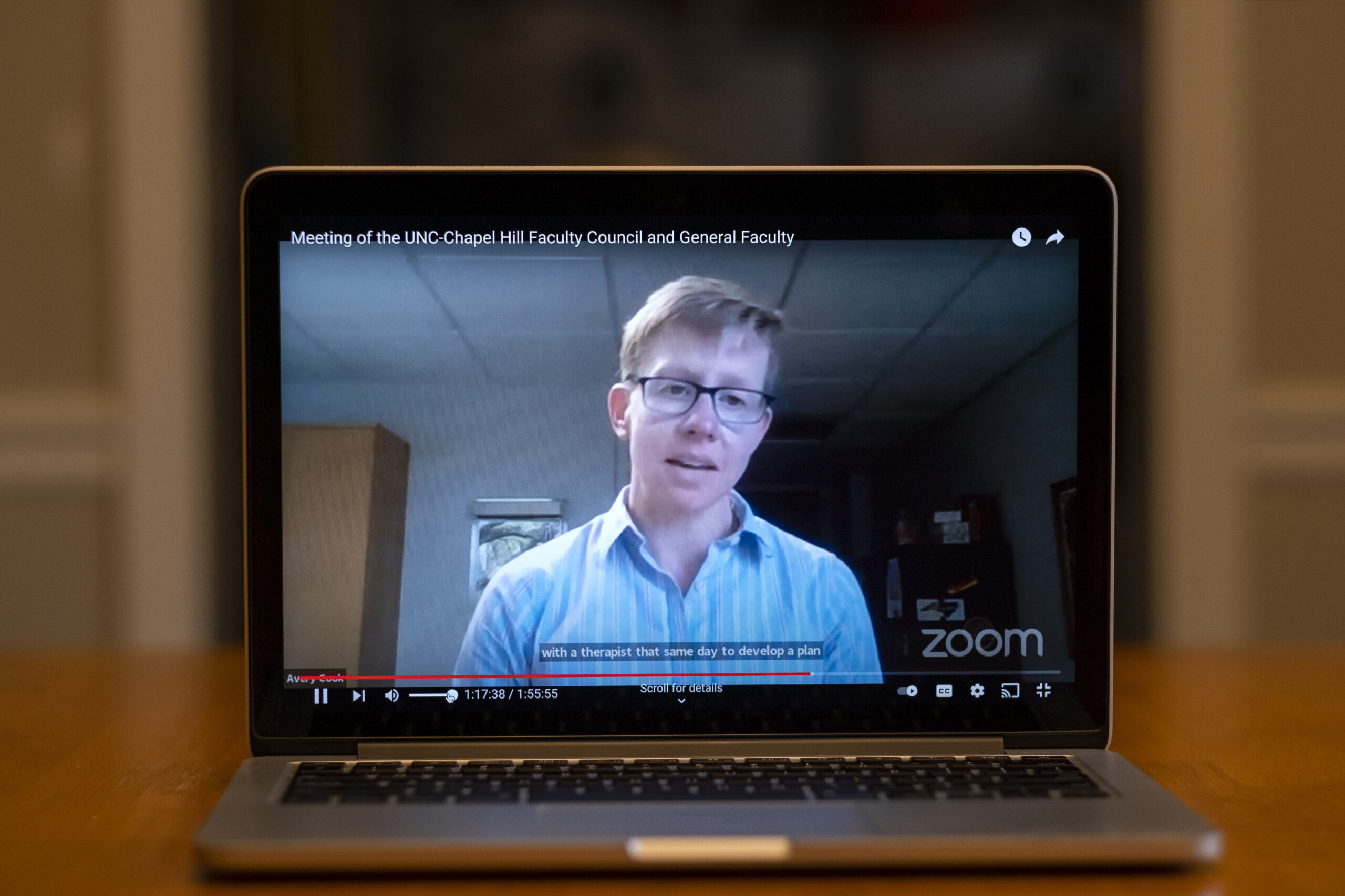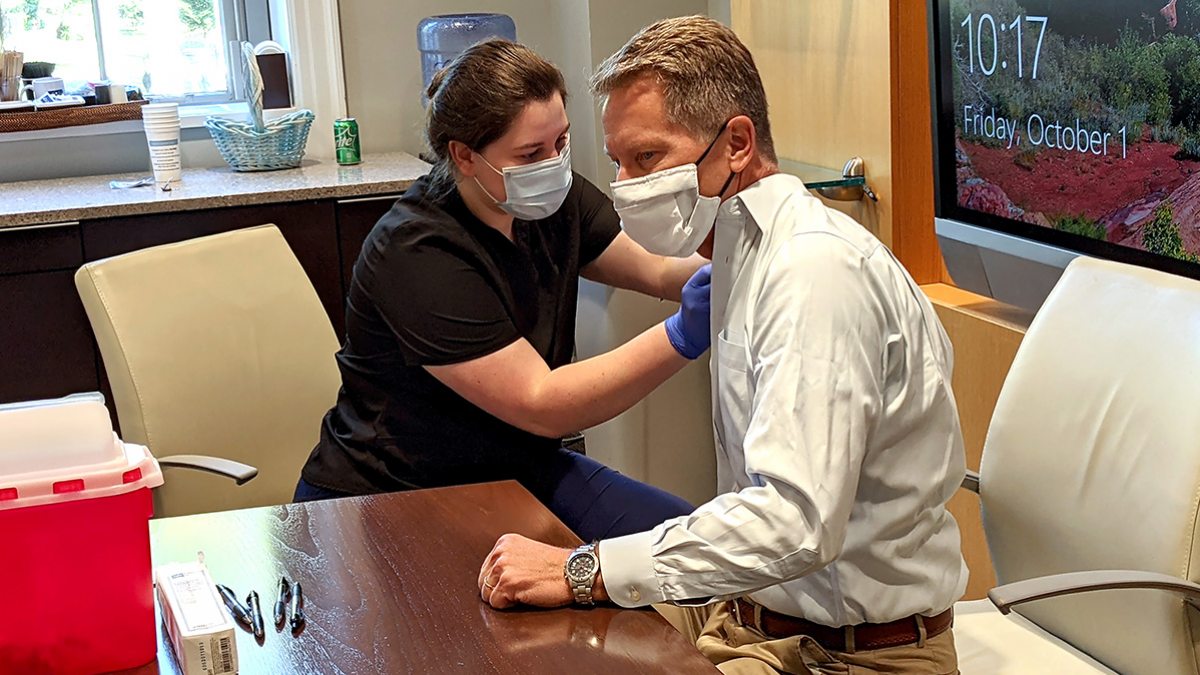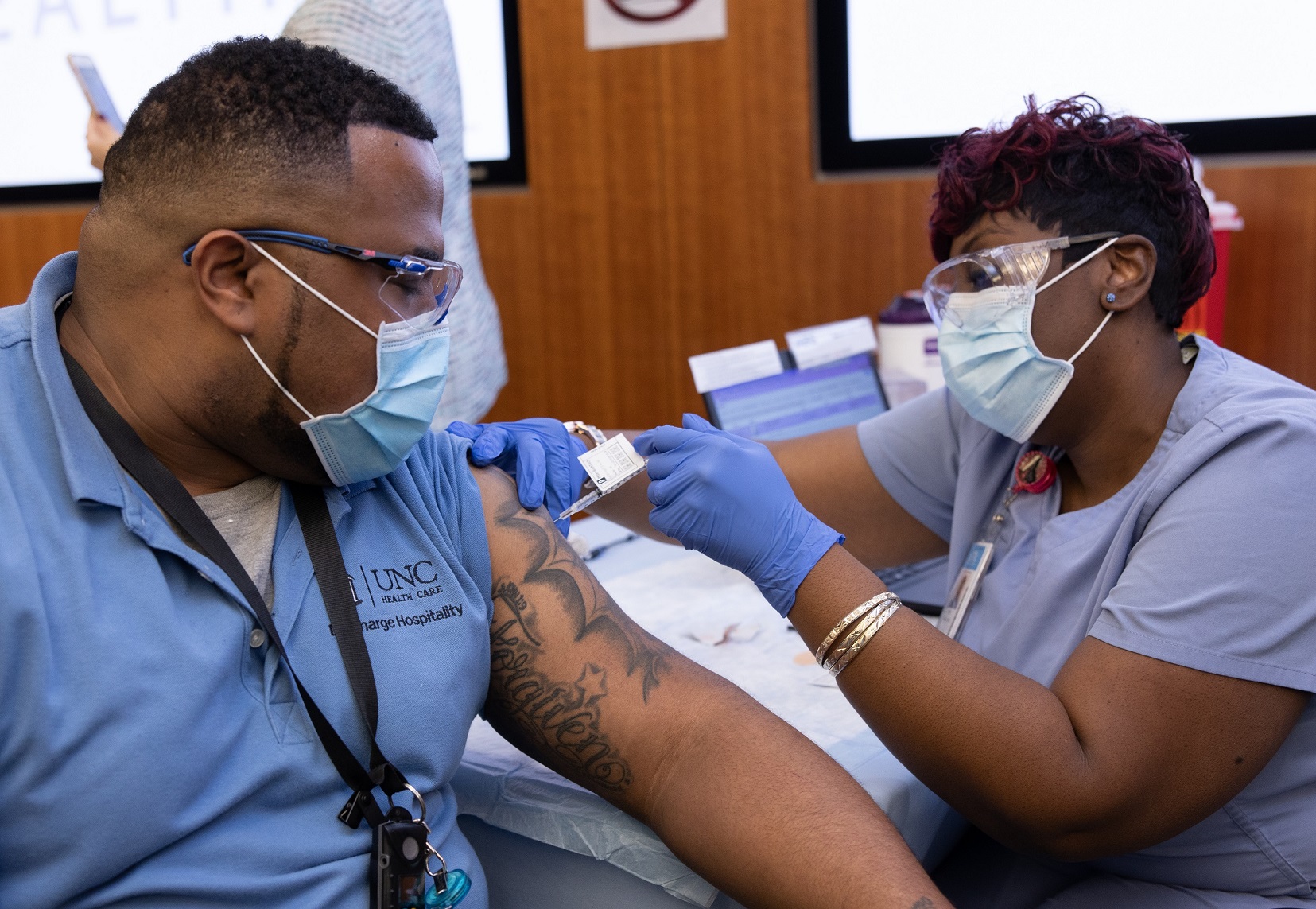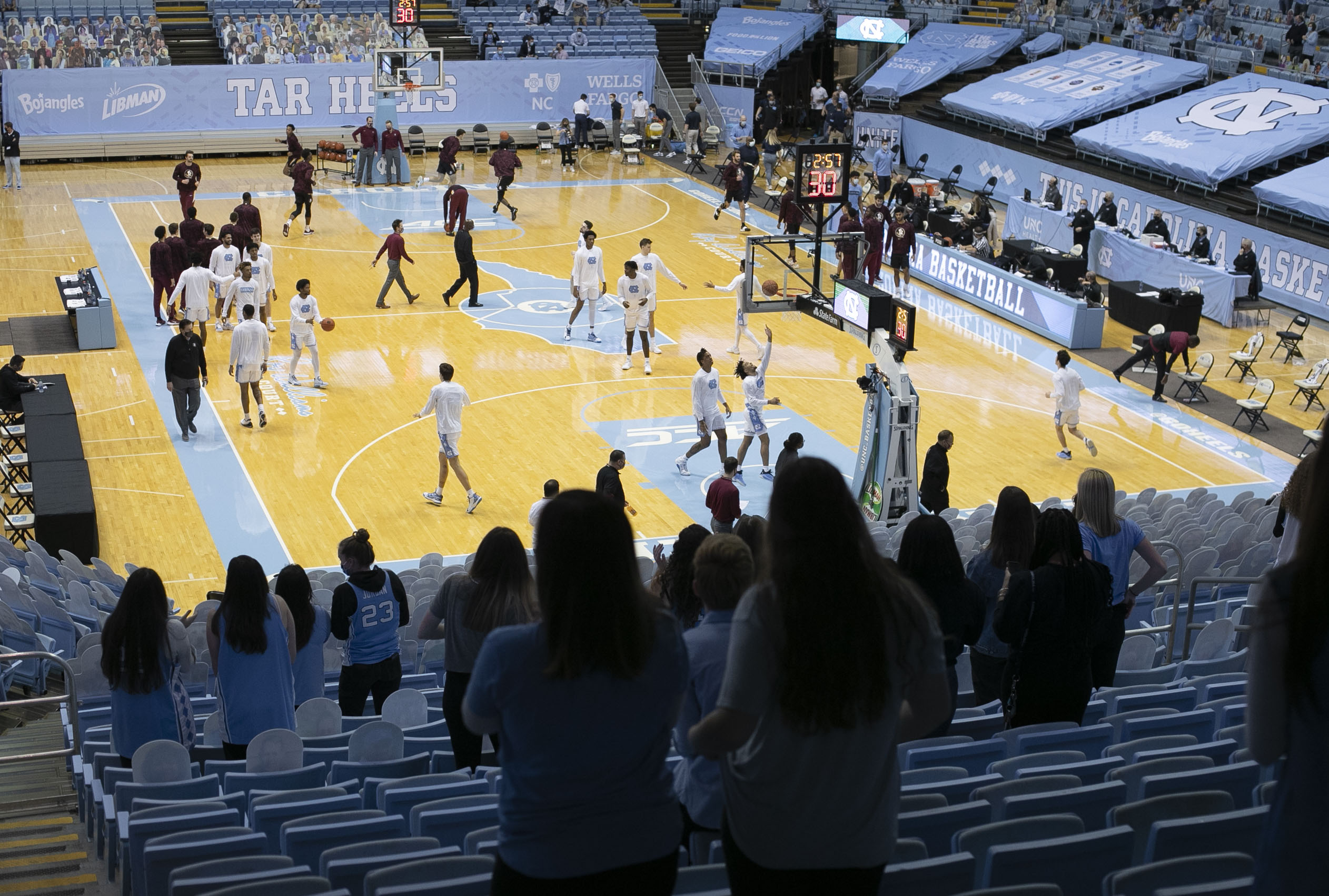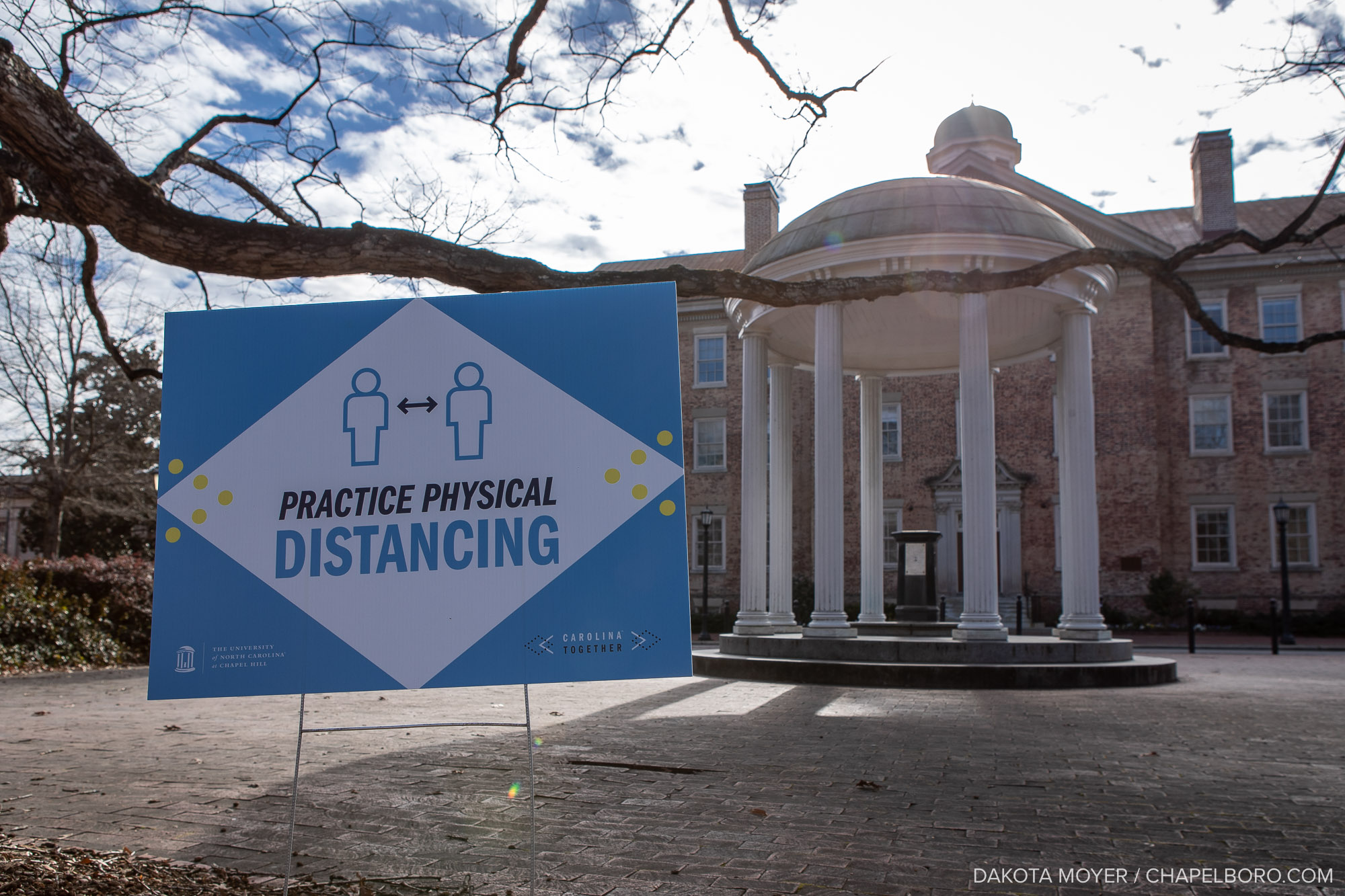Amid the Coronavirus pandemic, UNC’s Counseling and Psychological Services, better known as CAPS, has seen an uptick in students needing help managing grief and loneliness.
Allen O’Barr is a psychiatrist and the Director of CAPS.
O’Barr said CAPS was anticipating the effect of this pandemic even before UNC’s operations were suspended, so they were prepared to use Zoom to conduct teletherapy – or therapy in an online setting – when it became time.
“As we saw the time coming that we needed to go into social distancing, we were able to pick right up with our students in that way,” O’Barr said. “So we’ve been continuing to see students through social distancing via psychotherapy, group therapy and medication management. So I think it’s worked really well.”
O’Barr said, over the past two weeks, the calls have continued to pick up as students see that CAPS is able to offer their usual services virtually. Yet, even with more people calling in for psychological assistance, CAPS is still seeing a big decrease in patients.
“There is something to be said for all the students living in the same place and being able to just walk into a service,” O’Barr said. “We’re still seeing a lot of people but it’s not anything like what we would be seeing were we in normal operations without COVID.”
Thankfully, for the clients they are seeing, O’Barr said the transition to online teletherapy has actually gone very smoothly. While it took a little bit of adjustment for the therapists, the clients took right to the new format.
“I think so many of the student were so comfortable already using technology to communicate virtually that they just took right to it,” O’Barr said. “I mean I haven’t seen anybody stumble through it at all. I’m much more positive about the use of teletherapy. I was a little skeptical of it over the last few years but I’m not anymore, I think it’s fabulous.”
For students seeking additional support, CAPS has been offering a specialty support group held over Zoom in light of the pandemic. This new COVID-19 support group is meant to provide a safe space for students to talk through concerns while isolating.
O’Barr said the online, Zoom format has actually proven to be beneficial when used in this group setting.
“If students are feeling uncomfortable or they’re beginning to cry, or they’re beginning to be embarrassed about something, they just cut the video off and they’re still there,” O’Barr said. “In person you’d have to actually get up and leave and it’d be a big deal but in this scenario you just cut your video off until you feel like you’ve got yourself back together and then you pop back in.”
But not everyone can get access to these groups. In order to be eligible to participate, students must currently reside in the state of North Carolina when services are provided. O’Barr said this is because these group support sessions are ongoing treatments.
“As mental health providers, we can’t do ongoing care for someone in a state that we’re not licensed in and so that has really presented an issue because some of the students have left the state,” O’Barr said.
This means, even if a student is interested in the group, if they’ve left the state due to the pandemic and the closure of UNC’s main campus, CAPS by law can’t allow them to participate. Although, despite certain restrictions, CAPS is still able to provide emergency relief to students in need even if they aren’t in North Carolina.
For those who are eligible to participate, O’Barr said it just takes a few brave individuals to start going to a group to help spread the word. For the rest, he hopes those that do need help will seek it out.
The CAPS COVID-19 support group will continue its sessions throughout the summer. To get more information on the services CAPS provides amid the pandemic, visit their website.
Chapelboro.com does not charge subscription fees. You can support local journalism and our mission to serve the community. Contribute today – every single dollar matters.



